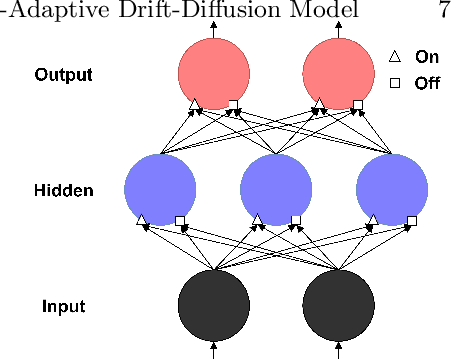Gabriele Cimolino
Latent Time-Adaptive Drift-Diffusion Model
Jun 04, 2021



Abstract:Animals can quickly learn the timing of events with fixed intervals and their rate of acquisition does not depend on the length of the interval. In contrast, recurrent neural networks that use gradient based learning have difficulty predicting the timing of events that depend on stimulus that occurred long ago. We present the latent time-adaptive drift-diffusion model (LTDDM), an extension to the time-adaptive drift-diffusion model (TDDM), a model for animal learning of timing that exhibits behavioural properties consistent with experimental data from animals. The performance of LTDDM is compared to that of a state of the art long short-term memory (LSTM) recurrent neural network across three timing tasks. Differences in the relative performance of these two models is discussed and it is shown how LTDDM can learn these events time series orders of magnitude faster than recurrent neural networks.
 Add to Chrome
Add to Chrome Add to Firefox
Add to Firefox Add to Edge
Add to Edge